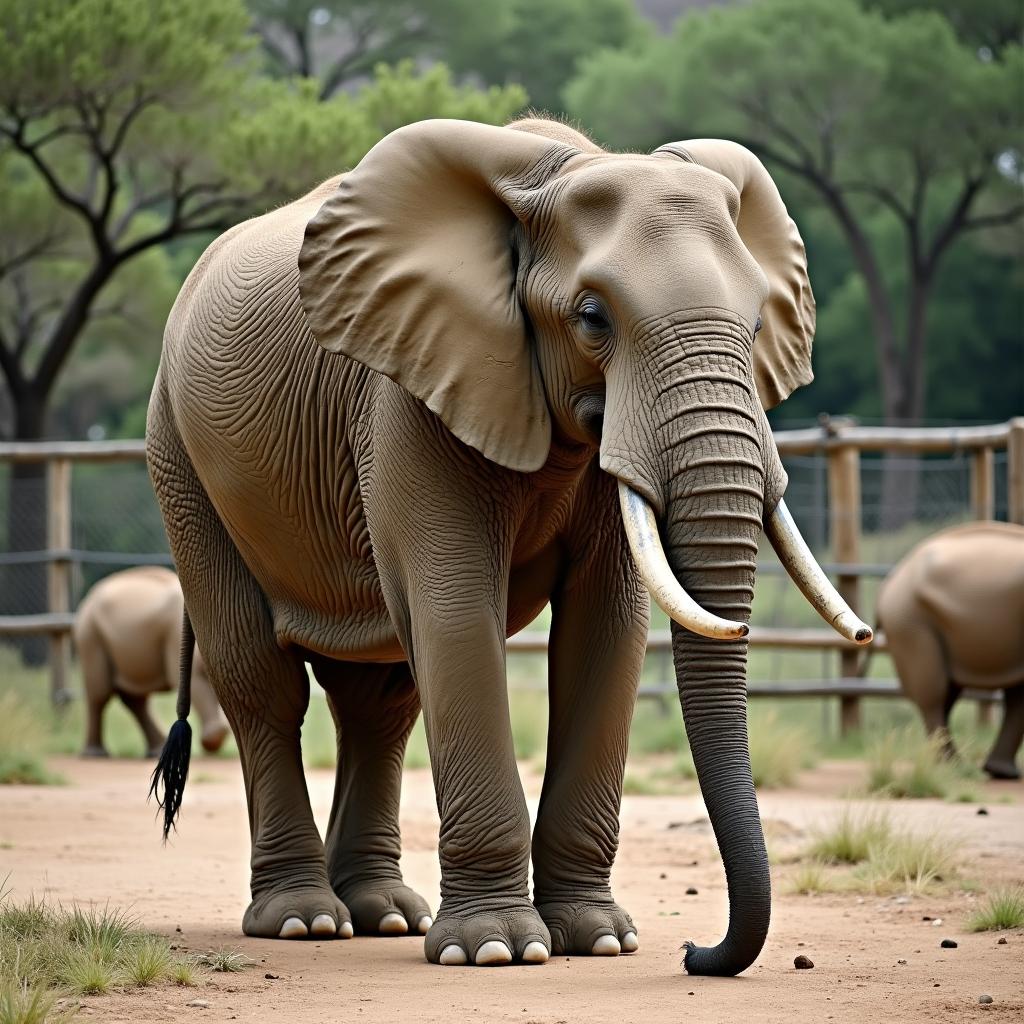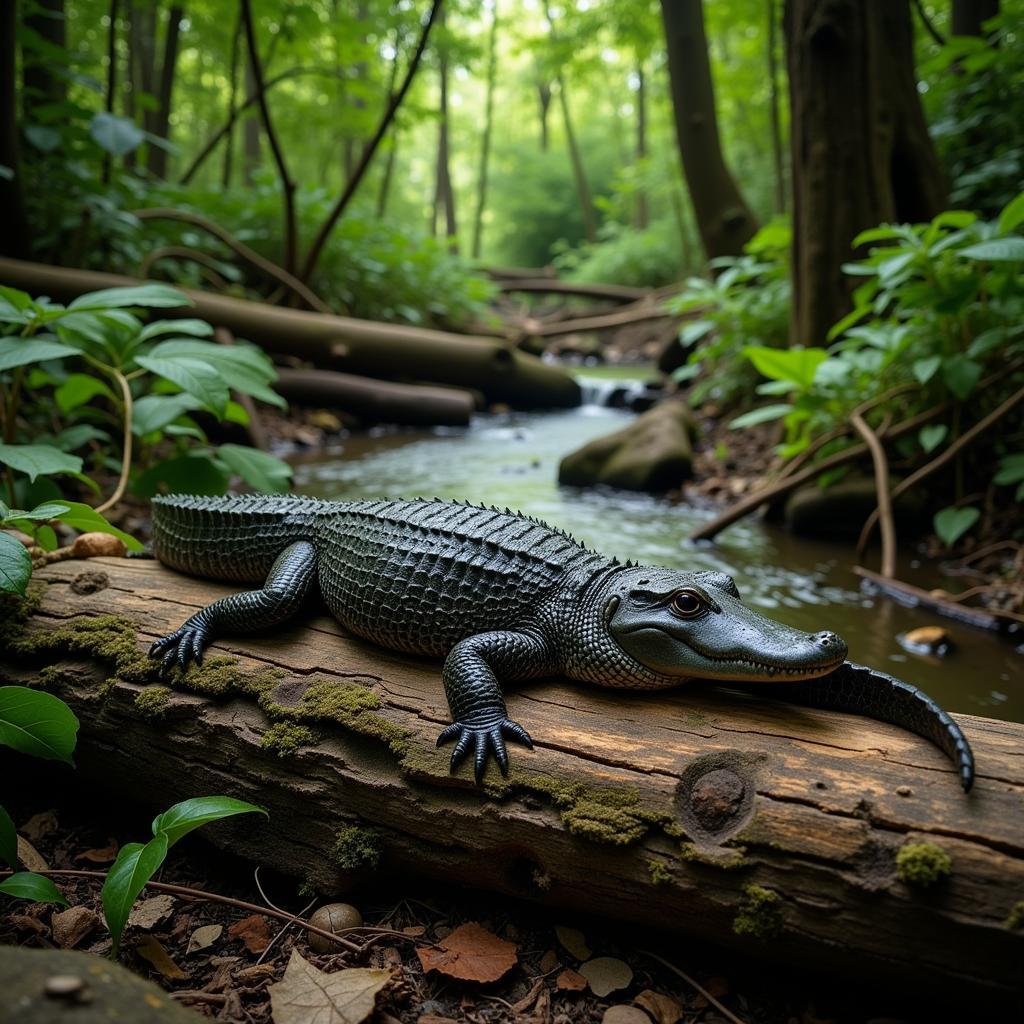The African Bush Elephant in Zoos: A Look at Conservation and Captivity
The African bush elephant, with its impressive size and intelligence, is a magnificent animal that has long captivated humans. While these elephants roam freely in their natural habitat, some of them also live in zoos around the world. But what is the impact of keeping these magnificent creatures in captivity? Are zoos playing a vital role in their conservation, or are they simply contributing to their decline?
Understanding the African Bush Elephant
The African bush elephant () is the largest land mammal on Earth. Found in savannas and forests across sub-Saharan Africa, these animals are highly social, living in matriarchal herds led by the oldest females. They play a crucial role in their ecosystem, influencing vegetation and contributing to the health of the land.
Why are African Bush Elephants in Zoos?
African bush elephants are often found in zoos for several reasons:
- Education and Conservation Awareness: Zoos aim to educate the public about the importance of conservation and the challenges facing these majestic creatures. By seeing these elephants up close, people can learn about their behaviors, ecology, and the threats they face, such as habitat loss and poaching.
- Research and Breeding: Zoos are involved in research on elephant behavior, health, and reproduction. They also participate in breeding programs to increase the population of endangered species.
- Tourism and Entertainment: Zoos are popular attractions, and elephants are one of the most sought-after animals for visitors.
The Ethics of Keeping Elephants in Captivity
The question of keeping African bush elephants in captivity is a complex and often debated topic. Here are some of the arguments for and against:
Arguments in Favor of Zoos:
- Conservation: Zoos can play a crucial role in conservation efforts by providing a safe haven for endangered species, conducting research, and raising public awareness.
- Education: Zoos educate the public about elephants and encourage support for conservation efforts.
- Research: Zoos allow researchers to study elephant behavior and physiology in a controlled environment, leading to valuable scientific discoveries.
Arguments Against Zoos:
- Limited Space: Zoo enclosures, while often large, are a far cry from the vast landscapes that elephants roam in the wild.
- Stress and Boredom: Captivity can cause stress and boredom in elephants, leading to behavioral problems such as repetitive pacing and swaying.
- Ethical Concerns: Many people believe that it is unethical to confine wild animals for entertainment purposes, no matter how well-intentioned.
Dr. Sarah Jones, a renowned wildlife expert, says:
“It is essential to remember that zoos are not a natural habitat for elephants. While they may offer some benefits for conservation and education, the ethical implications of keeping these intelligent and social creatures in captivity deserve careful consideration.”
How Zoos are Working to Improve Elephant Welfare
Many zoos around the world are working to improve the welfare of their elephant populations. These efforts include:
- Enrichment Programs: Zoos are providing elephants with opportunities for natural behaviors such as foraging, playing, and social interaction.
- Larger Enclosures: Zoos are building larger and more stimulating enclosures to provide elephants with more space and a sense of natural environment.
- Collaboration: Zoos are working with conservation organizations and researchers to develop new strategies for elephant conservation.
A conservationist, Mr. David Kimani, shares:
“We must work together to find a balance between protecting these elephants in their natural habitat and providing a safe environment for those that are already in zoos. This requires collaboration, innovation, and a commitment to ethical practices.”
Frequently Asked Questions about African Bush Elephants in Zoos
1. Are African bush elephants endangered?
African bush elephants are listed as “endangered” by the International Union for Conservation of Nature (IUCN). Their population has declined significantly due to habitat loss, poaching for ivory, and human-wildlife conflict.
2. How long do African bush elephants live?
African bush elephants can live for up to 70 years in the wild, but their lifespan in captivity may be shorter due to various factors, including stress and diet.
3. What do African bush elephants eat?
African bush elephants are herbivores, feeding primarily on grasses, leaves, fruits, and bark.
4. How many African bush elephants are there in zoos?
The number of African bush elephants in zoos varies depending on the region. You can often find more information on the website of specific zoos.
5. What can I do to help protect African bush elephants?
There are many ways you can help protect African bush elephants. You can:
- Support organizations working to conserve elephants in their natural habitat.
- Choose products that do not contain ivory.
- Educate yourself and others about the threats facing elephants.
African Bush Elephants in Zoos: A Complex Issue
The question of whether or not zoos should house African bush elephants is a complex one with no easy answers. While zoos play a role in conservation, research, and education, it’s vital to consider the ethical implications of keeping these intelligent and social animals in captivity. As we strive to protect elephants, we must approach this issue with sensitivity, understanding, and a commitment to the well-being of these magnificent creatures.
If you are interested in learning more about African bush elephants, their conservation, and the role of zoos in their future, visit [african elephant pictures](https://omenkamag.com/african-elephant-pictures/).

